
Do Marks Matter in Successful Future of Students?
04 Oct, 2021
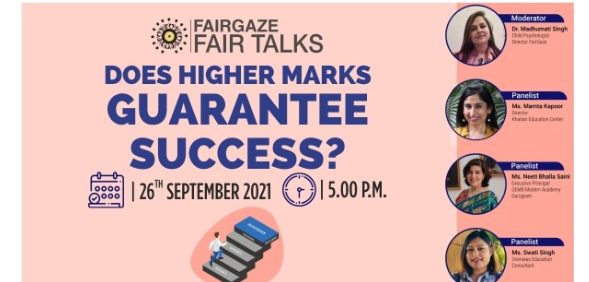
Summary: Fair Talks, a research-driven panel discussion by school education experts, elucidated the significance of marks and skills for a thriving future, and emphasised a balanced approach of marks as well as skills for successful future prospects. The experts analysed a survey conducted by FairGaze in which around 81% of respondents opined that understanding of the concept is more important than rote learning, and 79% concurred that scoring higher marks do not guarantee success and over 70% agreed that building skills of a child promise a bright future.
New Delhi, 4 October 2021: The recent episode of Fair Talks, a research-driven panel discussion by school education experts delved on marks being the primary criteria for assessing potential in students. The experts analysed a survey conducted by FairGaze which included parents, students, and teachers. The results interestingly pointed that 81% of respondents opined that understanding of the concept is more important than rote learning, and 79% concurred that scoring higher marks do not guarantee success and over 70% agreed that building skills of a child promise a bright future.
The survey also found that 69% of respondents felt that students are evaluated on the understanding of the concept and not on rote learning. Over 70% felt that focusing on building the skills of a child promises a bright future. An overwhelming 91% agreed that the marking system needs to be based on learning outcomes and not on memorising lessons, while over 79% of respondents suggest that schools should train students for crucial job skills.
The panellists included Ms. Mamta Kapoor, Director Teaching and Learning at Khaitan Public School, Ms. Neeti Saini, Executive Principal of the Jaymes Modern Academy, Gurgaon,
Ms. Swati Singh, an overseas education consultant, and Dr. Madhumati Singh, a Child Psychologist and Director at FairGaze, who was also the moderator of the session.
Ms. Mamta Kapoor emphasised the balance of marks and social skills to ensure success. She said that though marks may facilitate entry to good colleges that still does not guarantee success, while skills like communication, positive attitude with good dispositions like perseverance, and working on the weaknesses put a student stronger position to succeed.
Ms. Neeti Saini used a clarifying analogy for the pressure for scoring good marks with playing under pressure and stated that pressure builds resilience in students, while hard work needs to be part of the students’ attitude. She added that while pressure should be self-driven and oriented, hard work is the factor that guarantees success.
Dr. Madhumati Singh stressed the importance of the involvement of parents in students' academic growth. She said, “parents know the potential of the student, knowing itself helps to guide and orient the student.”
Ms. Swati Singh suggested a change in the grading system and examination and emphasised that experiential learning makes it part of the personality. The depth of understanding comes from self-driven students who are in charge of their life in a responsible way brings a change in the community.
Dr. Madhumati Singh concluded by saying, “As parents, we need to provide an environment where our kids learn to self propel, develop in a creative and innovative way”.
FairGaze is the leading school media and an engagement ecosystem for holistic development, which works with various stakeholders and policymakers, including organisers of premium events associated with the education industry. FairGaze engages with over 350,000 students from over 13,000 schools across India. FairGaze works with schools to help manage their newsletter, conduct holistic development programs, SDG activities, MUNs, promote the sports and cultural functions of the schools, and recognise the achievements of the students.
CONTACT INFORMATION
Contact PersonMr. Piyush Nayak
OrganizationFairGaze Skills Pvt. Ltd.
Phone+91 9717023501
Emailpiyush@fairgaze.com
Related Video
Related PR
-
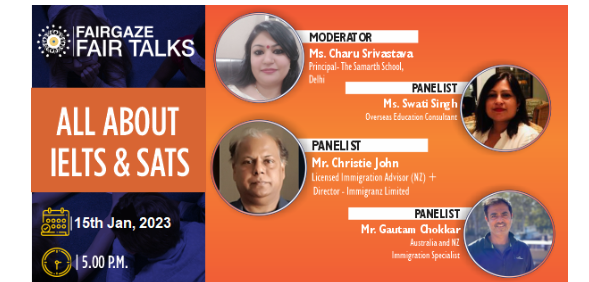 All About IELTS and SAT - FairTalks
All About IELTS and SAT - FairTalks
-
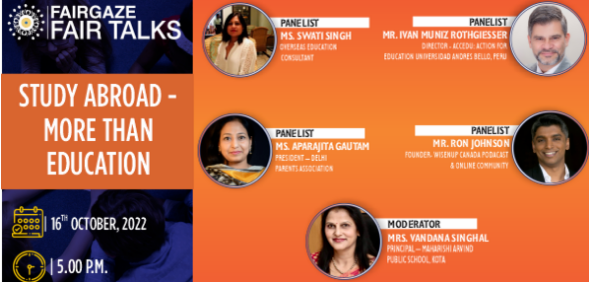 Studying Abroad More Than Education - FairTalks
Studying Abroad More Than Education - FairTalks
-
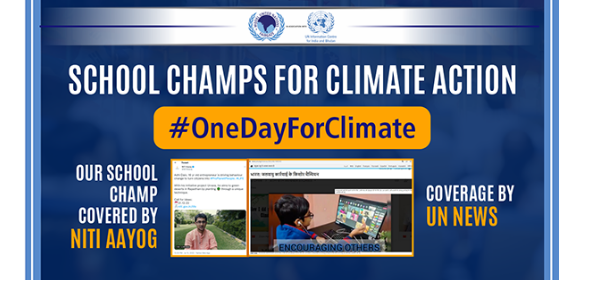 Climate Campaign by FairGaze Lauded by UN News, Niti Aayog
Climate Campaign by FairGaze Lauded by UN News, Niti Aayog
-
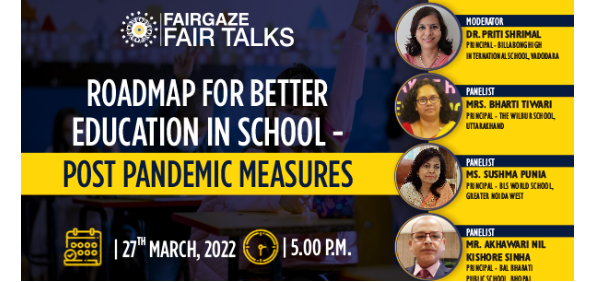 Post Pandemic Measures Needed To Recoup Learning Setback
Post Pandemic Measures Needed To Recoup Learning Setback
-
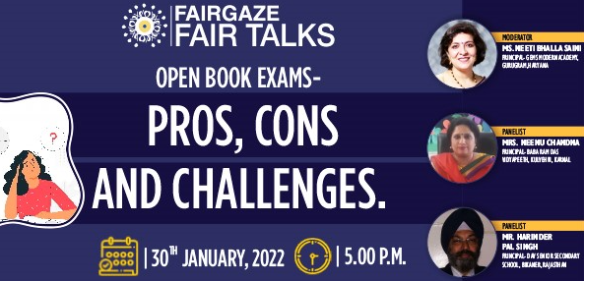 Open Book Exams – A Road Towards Concept-Based Curriculum
Open Book Exams – A Road Towards Concept-Based Curriculum
-
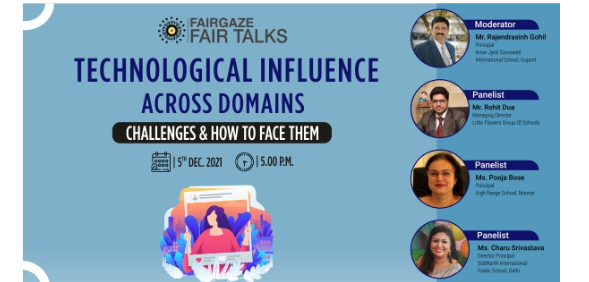 Lack of Training - A Challenge to Technology Use by Students
Lack of Training - A Challenge to Technology Use by Students
-
 Campaign for Climate Action Launched by FairGaze, UNIC
Campaign for Climate Action Launched by FairGaze, UNIC
-
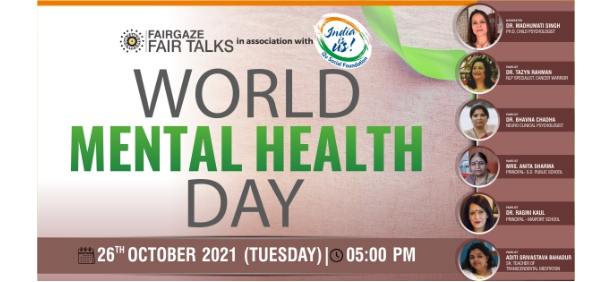 World Mental Health Day Campaign Engages 5,000+ Students
World Mental Health Day Campaign Engages 5,000+ Students
-
 Do Marks Matter in Successful Future of Students?
Do Marks Matter in Successful Future of Students?
-
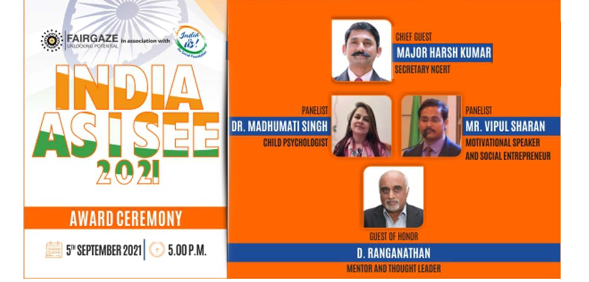 FairGaze App Launched during 'India As I See' Award Ceremony
FairGaze App Launched during 'India As I See' Award Ceremony

